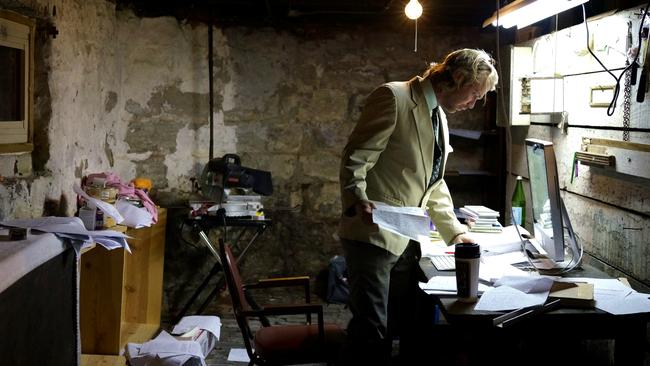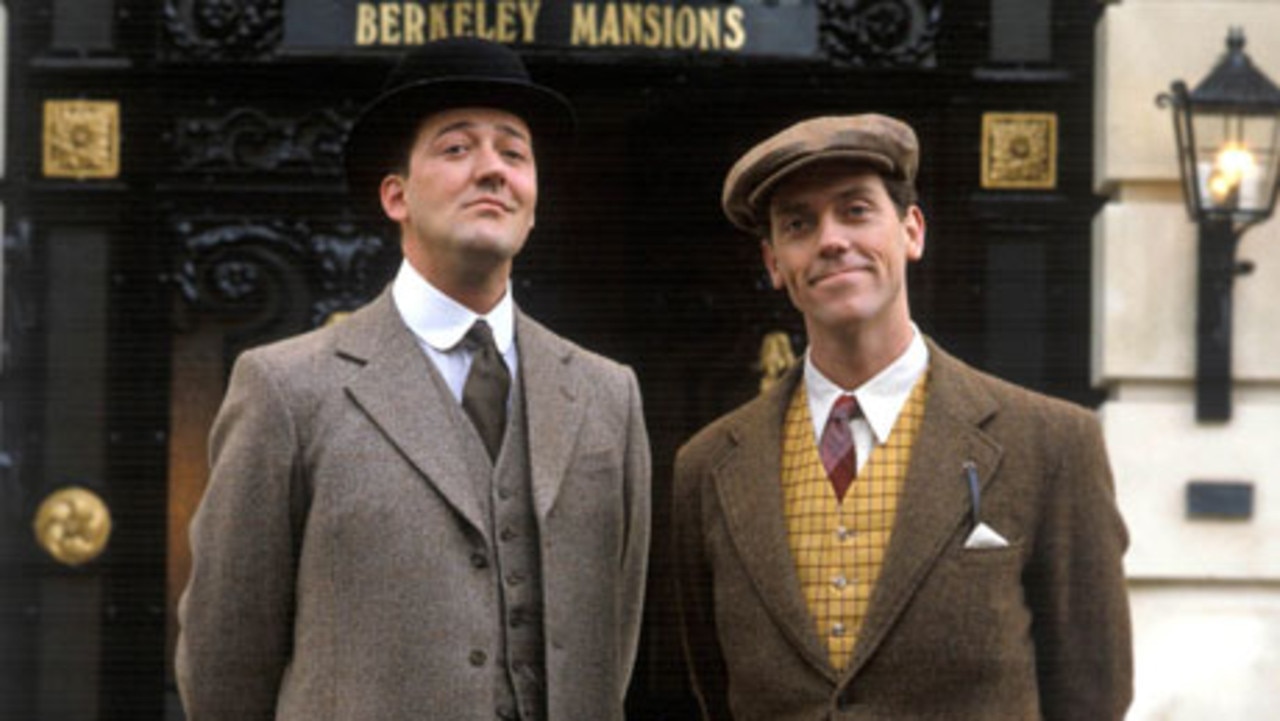‘Profoundly entertaining’: Why the government can never be believed
The Octopus Murders will ensnare you in a bewildering tangle of evidence, political ideas, and delicious scuttlebutt. It’s dark and unsettling and profoundly entertaining.

Most of us love those fictional thrillers that deal with the machination of dangerous conspiracies, that work the conflict between honour and betrayal. They’re always mesmerising in the way that, in all their generic variations, the real adversaries turn out not to be Russians or Chinese, but traitorous fellow citizens.
Netflix has recently released a compelling new crime documentary series, American Conspiracy: The Octopus Murders from the acclaimed team behind Wild Wild Country – which won the Emmy for best documentary series – including Stardust Frames - Duplass Brothers Productions, and director Zachary Treitz.
It’s confounding, weirdly personal in the way it’s been created, and for all the disconcerting assumptions on which The Octopus Murders operates, whether you believe the bigger picture alluded to by Treitz or not, it will ensnare you in a bewildering tangle of evidence, political ideas, and delicious scuttlebutt. It’s dark and unsettling and profoundly entertaining.
The Duplasses have worked with Netflix on multiple projects since 2015, apart from Wild Wild Country; they were behind Evil Genius: The True Story of America’s Most Diabolical Bank Heist and several movies.
Treitz is a young emerging documentarian – at times he appears with his precariously carried hand-held camera like a studious teenager - though his main credit is the 2015 comedy war drama, Men Go to Battle.
But this four-part series, an extraordinary work of investigative journalism in which, across a tumultuous decade, he intrepidly dives into a 30-year-old case with his friend photo-journalist Christian Hansen, will surely be his big break, even if they were lucky to survive with their lives. It’s impossible to tell, but danger seems to constantly envelop the young investigators as they, at times naively, kick over the rocks of the past.
The first scene has Hansen, trying to talk to a former senior cop involved in the case by phone, warned off. “If you think for a minute you’re going to expose somebody , you’re going to get yourself killed,” he’s told. It’s not the only time. A CIA operative, a possible killer it turns out, warns them off: “You don’t know this world.”
It’s a series that, like so much contemporary fiction, has its roots in the September 11 terror attacks, but which also provides a diverting echo really of that 1970s’ quasi-moral, distrustful genre presenting dark conspiratorial visions highly suspicious of our political institutions.
And like those paranoid thrillers of the 70s, which it so resembles, scarily so, it’s about the loss of faith in government, well-founded cynicism about the presidency, and a legitimate fear of the control just a few well-connected, larger-than-life characters have on public policy to their own financial advantage.
And above all, with its raddled, suspicion-laded atmosphere, its often manic conjecture, it not only panders to the idea but convinces us that as always what the official view is on the world just isn’t true.
And like those conspiracy movies and novels, Octopus Murders is centred on a protagonist, two of them really, who stumble on a secret, soon assisted by others, some anonymous sources under fear of their lives, that possibly leads to a vast government plot.
And like those single-minded characters who stumbled upon evidence of machinations deep within the upper circles of the US government and the corporate establishment, find themselves in terrible jeopardy.
For those of us who grew up on stories about why governments can never be believed, conspiracy taking the place of monsters in childhood horror stories, this is unmissable entertainment.
Treitz and Hansen work off that heightened sense that no one can be trusted and that there are greater invisible forces at work – and that people who fall in between the cracks of a broken system, caught in a web of labyrinthine moral ambiguity, can so easily be crushed and forgotten.
“Once you dip your toes into this story it’s almost like a tar, some sort of magic ooze that kind of gets into you, as soon as you touch it,” says Treitz. “It’s like what they say about the abyss - you stare into it and it stares back. This is that story. You touch it and it touches you and it kind of consumes you.”
They find themselves enveloped into a seemingly never-ending network of plots and seditions, many esoteric, weird rabbit holes really, resulting from an investigation by the late reporter, writer and poet Danny Casolaro in the early 1990s.
“The story that we were telling was about what happened to Danny and what he was writing about, and how much of all those things was real and what was not – which gets into a really esoteric, weird, hall of mirrors kind of a world,” Treitz told The Wrap.
Casolaro was discovered in the summer of 1991 by a housekeeper at the Martinsburg, West Virginia, Sheraton hotel when she opened room 517 to clean it.
Casolaro, a hotel guest, was lying dead in a tub of bloody water. A maintenance officer soon followed – interviewed by Treitz on film, a reliable witness among many who aren’t – still shuddering at the amount of blood he saw, smeared over the walls, and on the counter.
It didn’t look like suicide, there were also an unusual number of cuts on Casolaro’s arms, 12 in all, one so deep it severed a tendon, too severe to be self-inflicted. There was a short, scrawled note and it written off as suicide.
Hansen became obsessed with Casolaro a decade ago – he even eerily plays him in the series – while working on his journalism degree writing a paper on the private prison industry and its links to the American intelligence community.
His friend Treitz worried about his mental health. “He would tell me about weird people that he was talking to,” he told Moviemaker.
“I just kind of got worried for him, just on a personal level. More than, ‘Oh, great story, let’s make a documentary about it,’ I was like, ‘Dude, are you all right?’”
But soon he too is sucked into what he calls “a horror movie”. Casolaro was a specialist in the burgeoning software and computing industry tipped off about an ongoing report of a contract dispute between the Department of Justice and Bill Hamilton, the founder of a technology company called INSLAW.
Casolaro investigates and discovers what he calls the Octopus Conspiracy, later described as “a web of nefariousness”. As the series documents – though it’s confusing at first – the story emerges of a piece of sophisticated software called the Prosecutor’s Management Information System (PROMIS) developed by Inslaw Inc with financial support by the DOJ. It’s super-surveillance software used to spy on criminals and police alike.
INSLAW alleged in a lawsuit that the DOJ subsequently stole and profited by the sale of PROMIS, cheating INSLAW out of millions. But was the case connected to the Iran-Contra arms deal; was the so-called “October Surprise”, possibly concocted and illegally engineered election of Ronald Regan involved, alongside murder, dirty money, clandestine government operations, and were Watergate and the Bay of Pigs invasion really orchestrated by rogue agents?
It’s gnarly, raw, visceral and nasty. And unnerving.
We’ve got sophisticated spyware, rigged presidential elections, assassinations and murders on isolated Indian reservations, master spies, secret agencies, dead bodies in hotel bathtubs, suspicious autopsies, a paranoia-inducing exploration of how big business manipulates countries through its intelligence services, and even good guys who seem like bad guys.
If that’s not enough, there’s Middle-European weapons merchants and Iran-Contra spooks and a character straight out of a paranoid crime thriller called Michael Riconosciuto. He’s a prime source for the creators, a brilliant computer programmer with alleged ties to extremist political movements, who as Treitz says, “talks in extremely long paragraphs with footnotes of footnotes.”
The secrets of the “real Zapruder film” are revealed too, or maybe, again, they aren’t.
Like many of the best of so-called prestige true crime, it’s explicitly developed around its creators, Hanson, and his director, as they research and report on their search and the emerging consequential stories, trying to find a coherent narrative from the fragments.
They mirror and orchestrate the shifts in perspective, standing in for us at times as we too evaluate the evidence and breakthroughs. They use notes written by Casolaro to develop their leads and guide their exhaustive research. Hansen even made a copy of every single page of Casolaro’s notes, scrawls and drawings, a five-day-long process.
It’s told relatively conventionally through seemingly countless interviews with not only central figures like Riconosciuto and Casolaro’s brother Tony, but more peripheral figures like paramedics, and law enforcement.
There’s archival footage of course, Ken Burns’ style sequences of fading photographs and documents, family photographs, and a deal of hand-held coverage of Hansen and Treitz travelling in dimly lit cars to exotic locations. During filming, the pair also gained access to tape recordings — most of which are made public for the first time.
Brave and fascinating it’s also a lesson in what can happen to investigative journalists when they enter dangerous unknown words and open themselves to what Treitz calls “a fair amount of paranoia.”
American Conspiracy: The Octopus Murders streaming on Netflix.




To join the conversation, please log in. Don't have an account? Register
Join the conversation, you are commenting as Logout